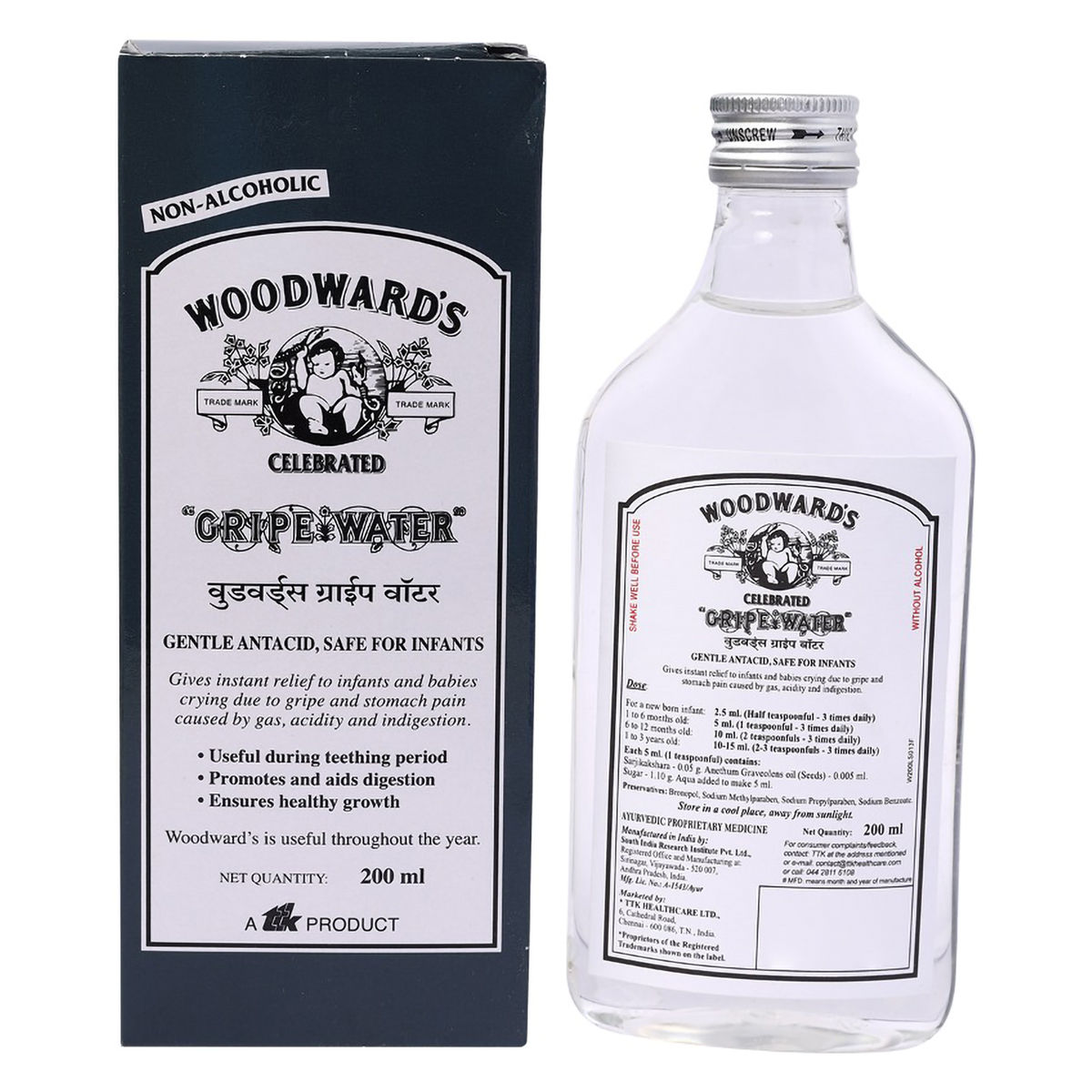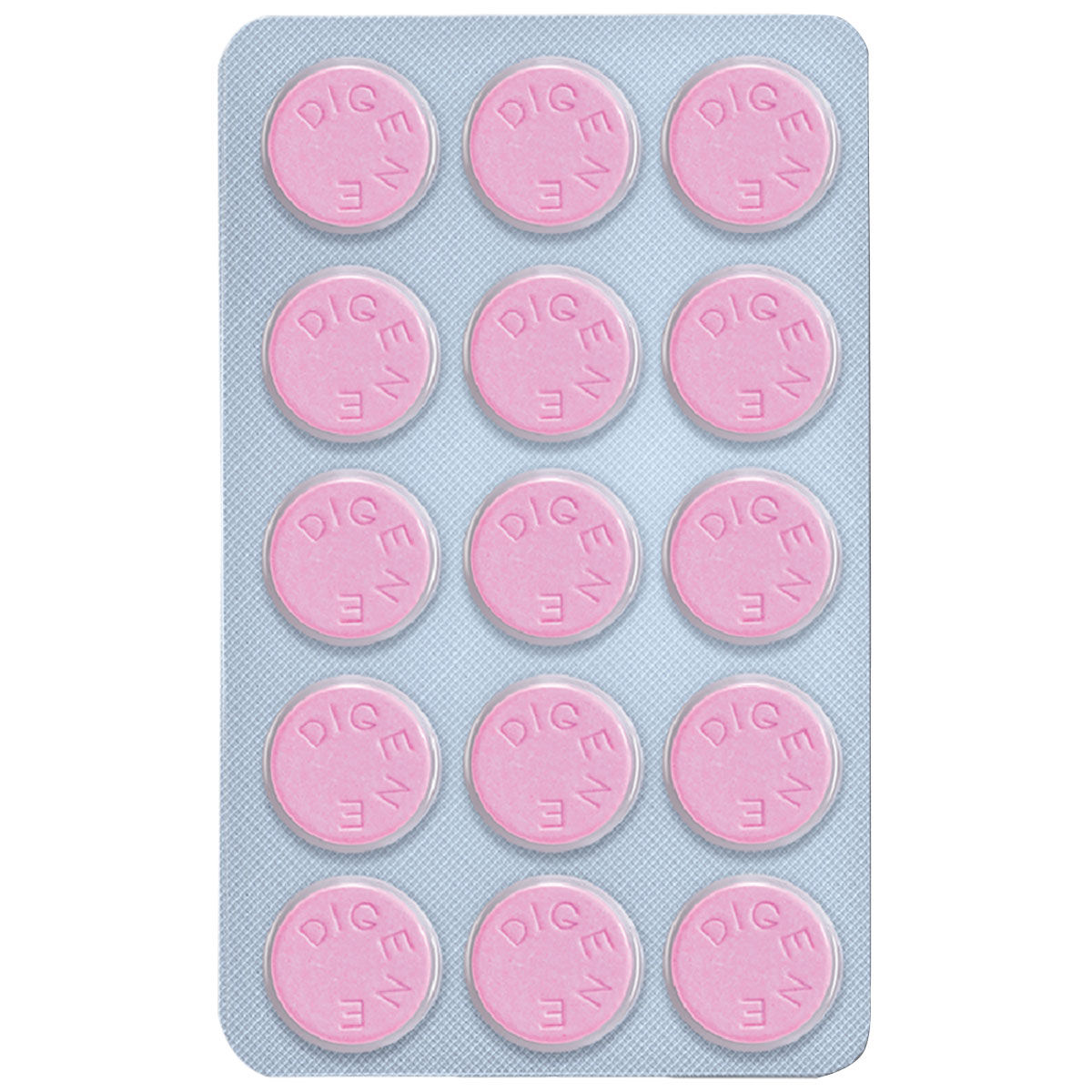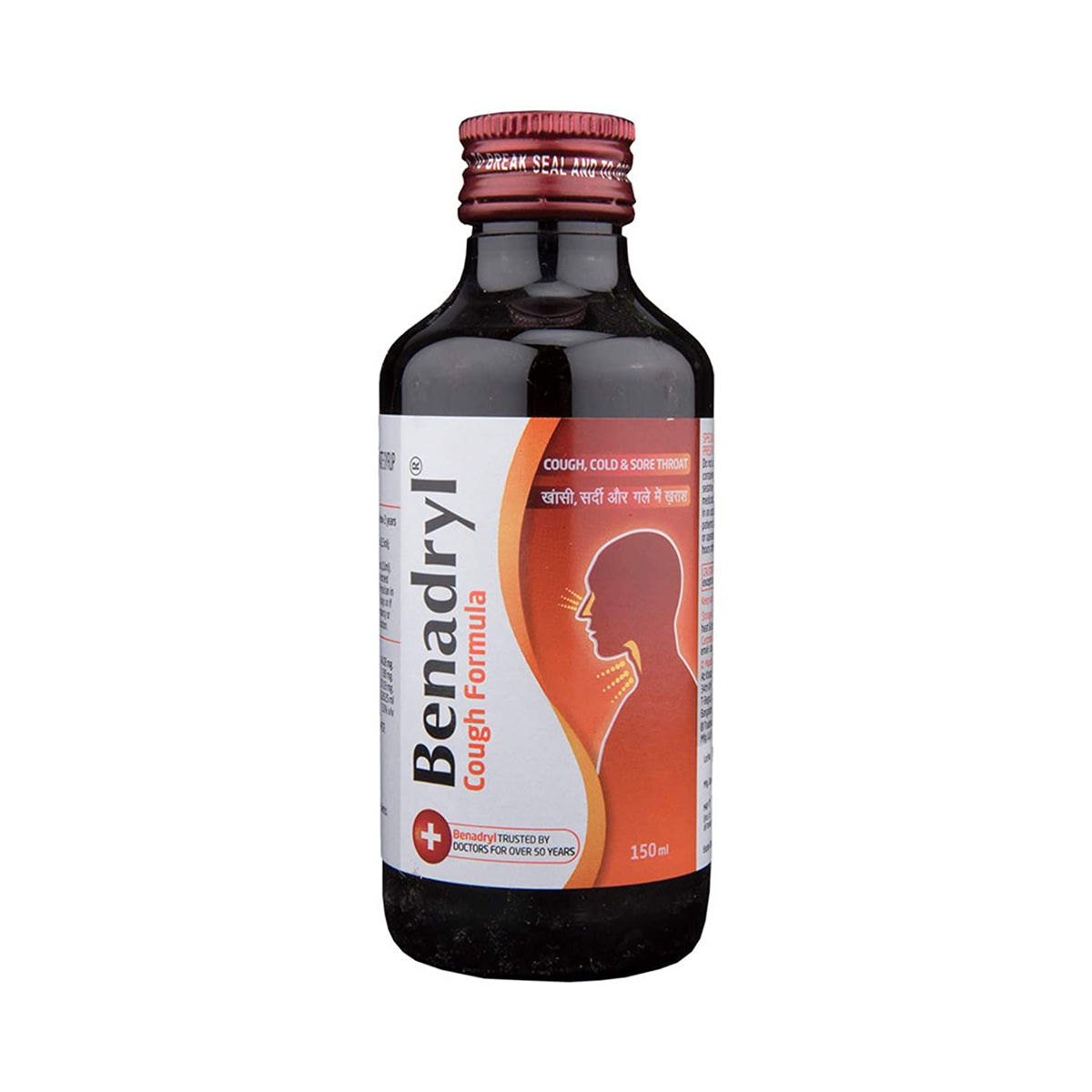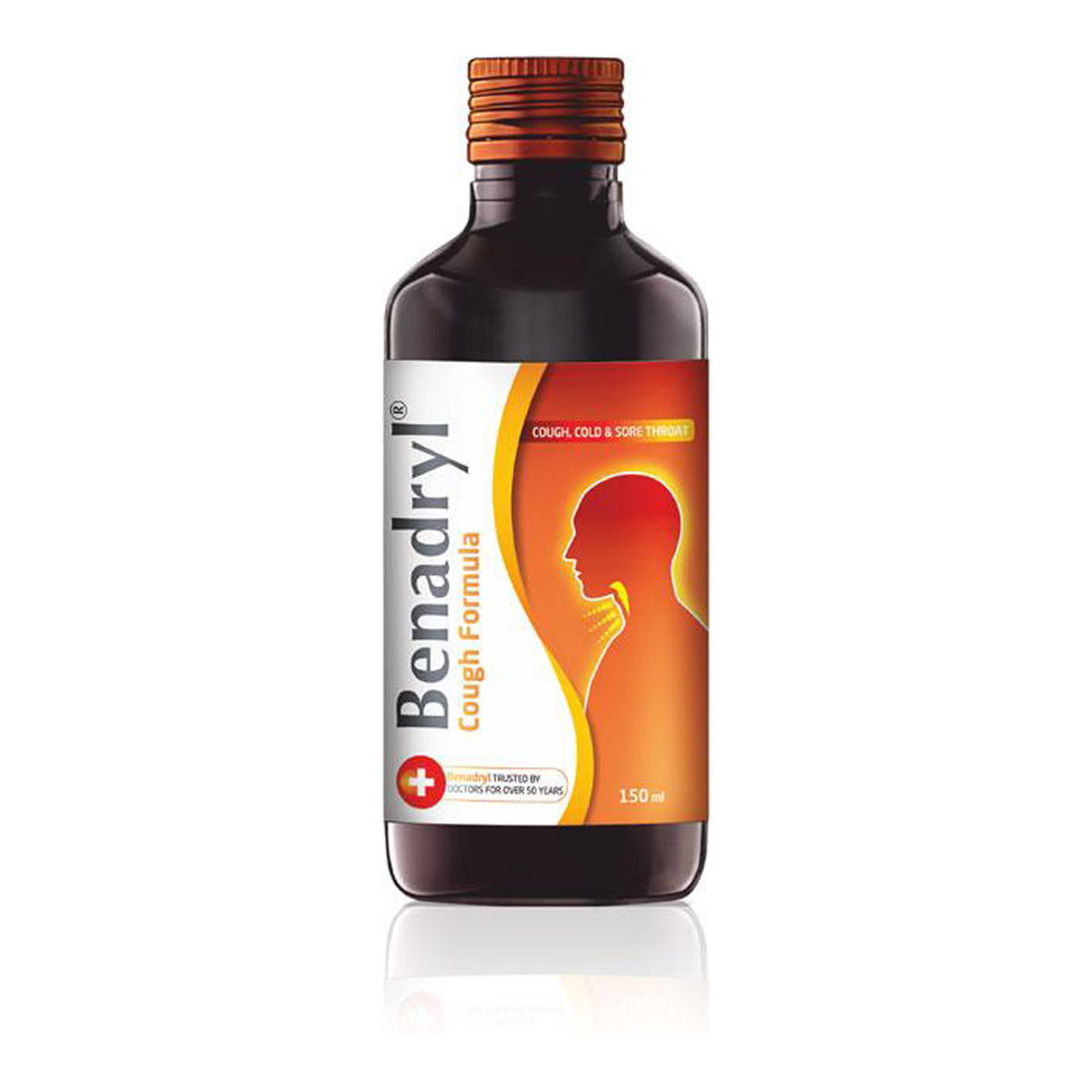Benadryl Cough Formula Syrup, 450 ml
₹248.4*
MRP ₹276
10% off
₹230.55*
MRP ₹276
15% CB
₹45.45 cashback(15%)
Free Delivery
With Circle membership
(Inclusive of all Taxes)
This offer price is valid on orders above ₹800. Apply coupon PHARMA10/PHARMA18 (excluding restricted items)
Know Your Delivery Time
Provide Delivery Location
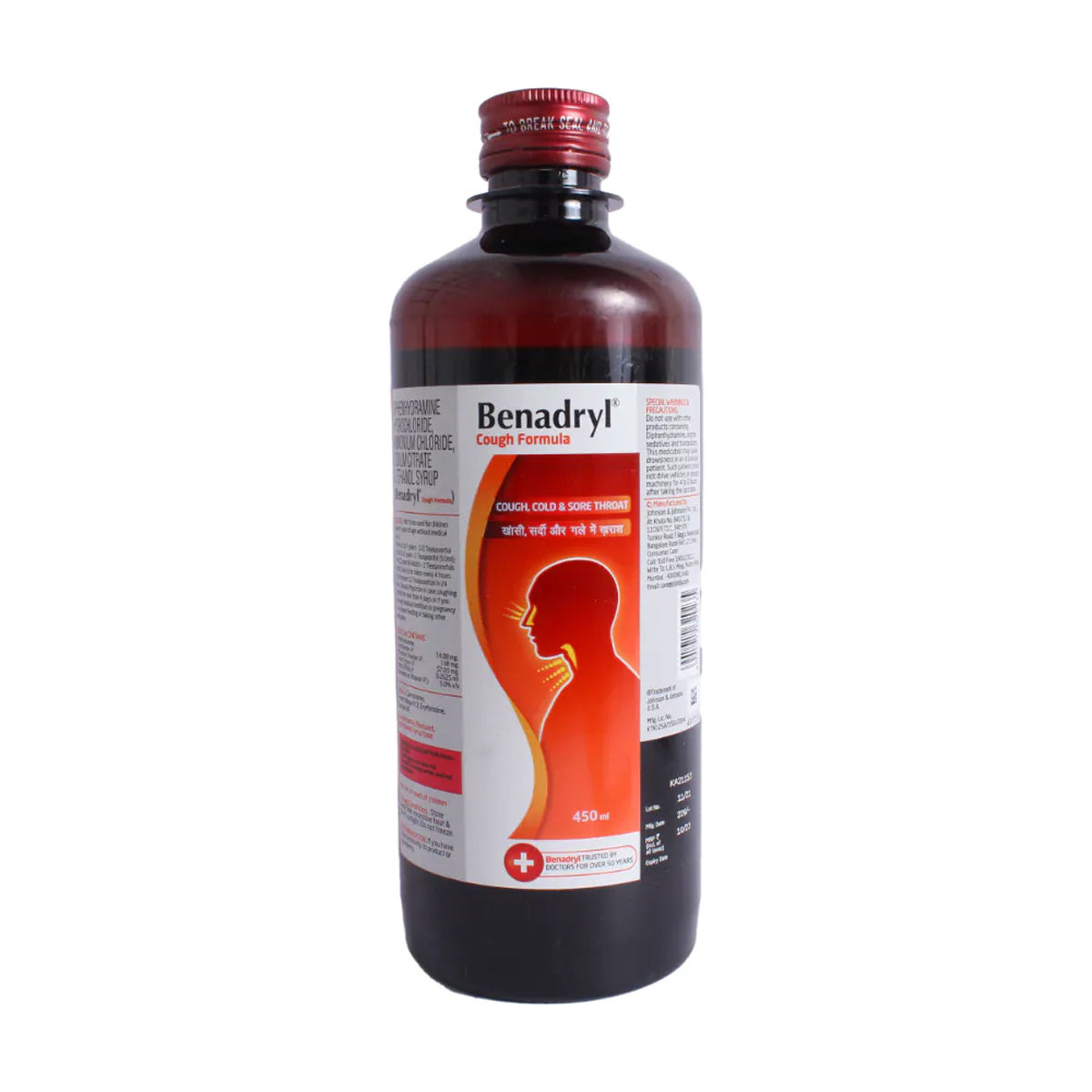
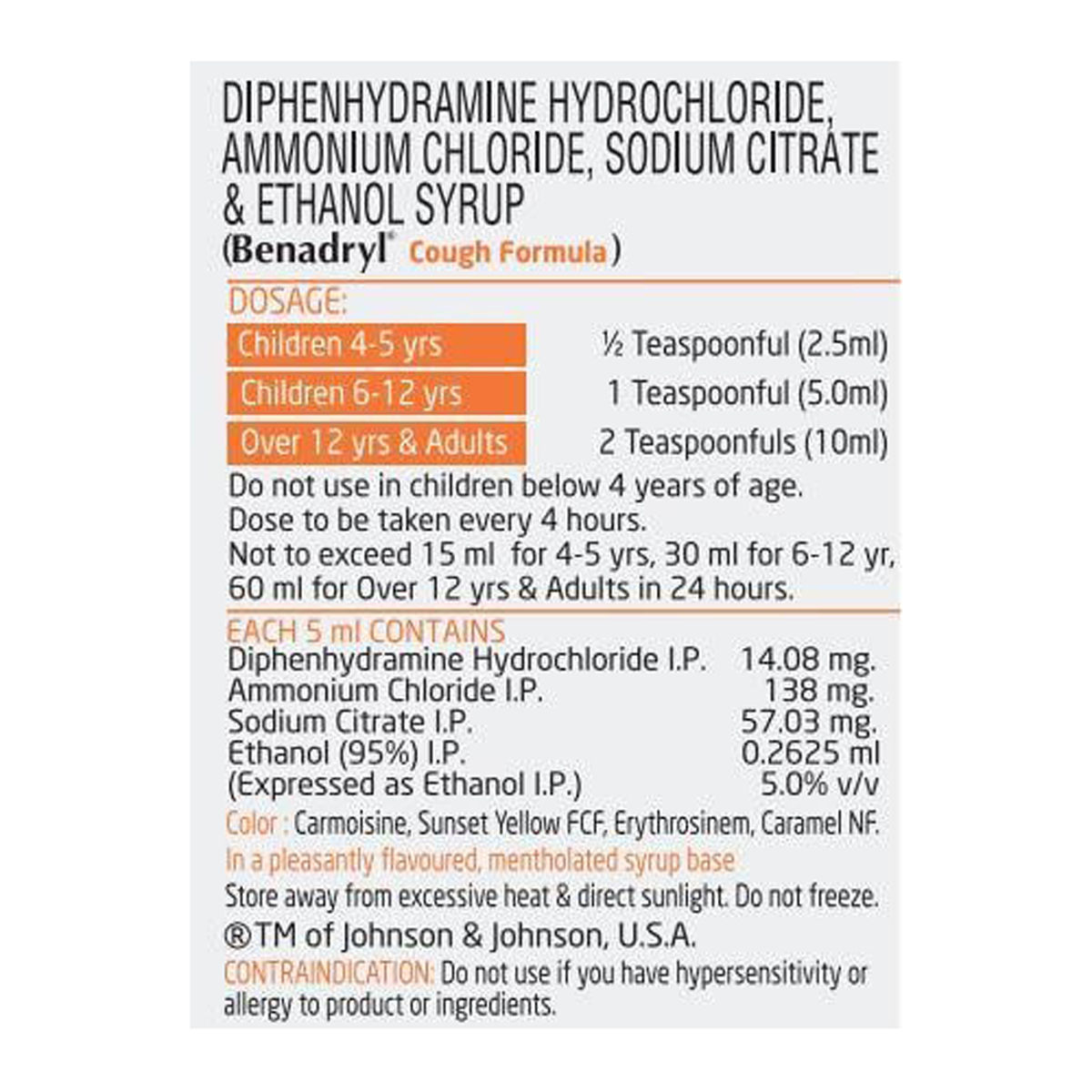
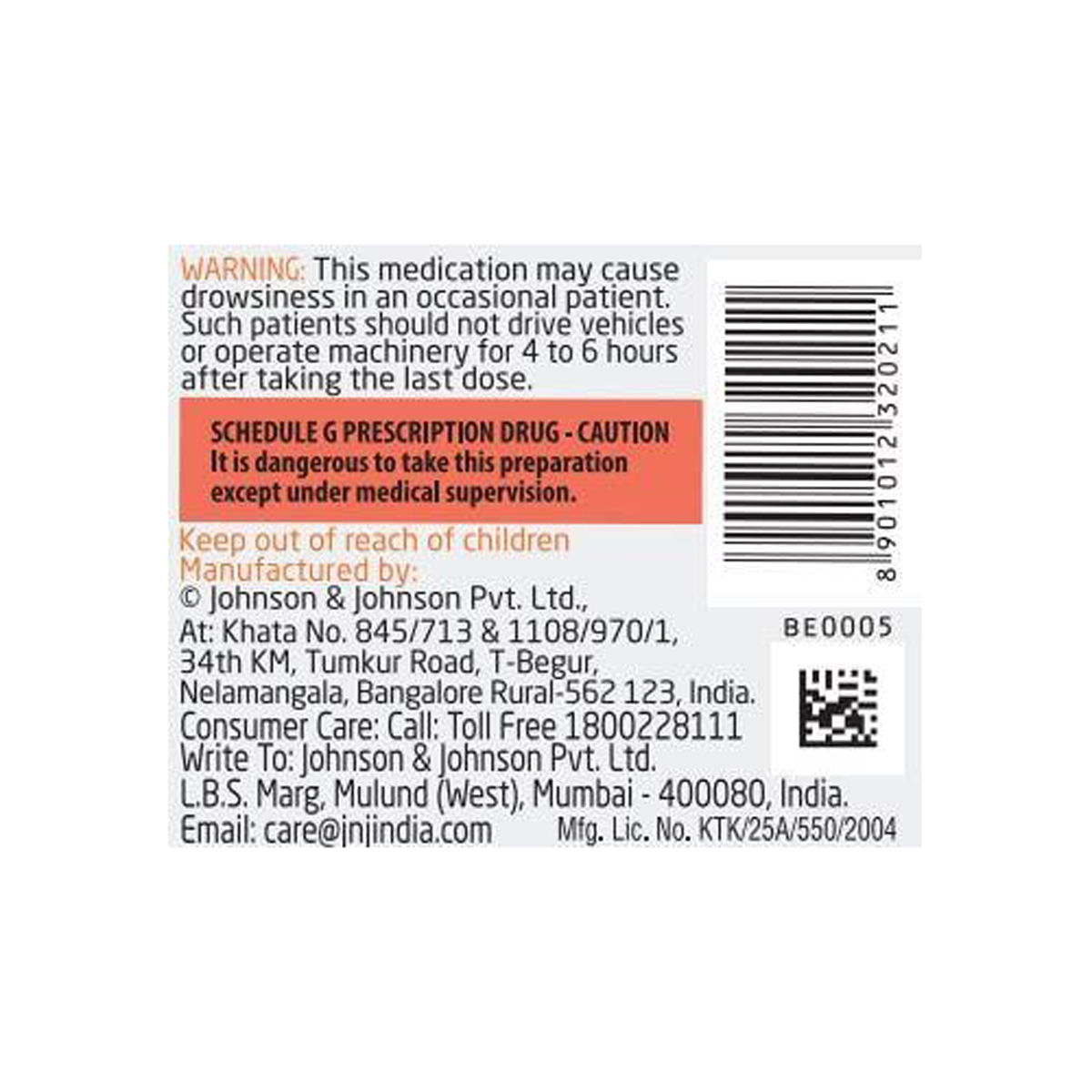
Selected Pack Size:450 ml
50 ml ₹77.4
(₹1.55 / 1 ml)
In Stock
150 ml ₹153
(₹1.02 / 1 ml)
In Stock
450 ml ₹272.7
(₹0.61 / 1 ml)
In Stock
Whats That

Secure Payment

India's Most Trusted Pharmacy

Genuine Products
Manufacturer/Marketer :
Consume Type :
Return Policy :
Expires on or after :
About Benadryl Cough Formula Syrup
Benadryl Cough Formula Syrup belongs to a class of medications called ‘expectorants’ used to treat cough. Coughing (dry or productive) is the body’s way of clearing irritants (like allergens, mucus, or smoke) from airways and preventing infection. There are two types of coughs, namely: Dry cough and chesty cough. A dry cough is tickly and doesn't produce any vicious or thick mucus, while a chesty cough (wet cough) means mucous or sputum is produced to help clear your airways.
Benadryl Cough Formula Syrup is a combination of four drugs, namely: Ammonium chloride (expectorants), Diphenhydramine hydrochloride (antihistamine), Sodium citrate (mucolytic), and ethanol. Ammonium chloride works by increasing the volume of fluid in the airways, reducing the stickiness of mucus. Diphenhydramine hydrochloride works by blocking the action of histamine, a substance responsible for causing allergic reactions. Sodium citrate works by thinning and loosening phlegm (mucus) in the lungs, windpipe, and nose. Thereby, it helps to cough out easily. Ethanol acts as a preservative.
Take Benadryl Cough Formula Syrup as prescribed by your doctor. You are advised to take Benadryl Cough Formula Syrup for as long as your doctor has prescribed it for you based on your medical condition. In some cases, you may experience drowsiness, dizziness, dry mouth, nervousness, stomach pain, diarrhoea, or constipation. Most of these side effects of Benadryl Cough Formula Syrup do not require medical attention and gradually resolve over time. However, if the side effects persist or worsen, please consult your doctor.
If you are allergic to Benadryl Cough Formula Syrup or any other medicines, please tell your doctor. Benadryl Cough Formula Syrup is not recommended for children below 2 years of age unless advised by a doctor. If you are pregnant or breastfeeding, it is advised to inform your doctor before using Benadryl Cough Formula Syrup. Benadryl Cough Formula Syrup should be used with caution in elderly patients due to the increased risk of side effects. Drive only if you are alert as Benadryl Cough Formula Syrup may cause dizziness. You are recommended to avoid alcohol consumption with Benadryl Cough Formula Syrup as it may increase drowsiness or dizziness.
Uses of Benadryl Cough Formula Syrup
Medicinal Benefits
Benadryl Cough Formula Syrup contains Ammonium chloride, Diphenhydramine hydrochloride, Sodium citrate and ethanol used to treat cough. Ammonium chloride is an expectorant that increases the volume of fluid in the airways, reduces the stickiness of mucus and helps to remove it from the airways. Diphenhydramine hydrochloride is an antihistamine (anti-allergic drug) that blocks the action of histamine, a substance responsible for causing allergic reactions. It helps to provide relief from symptoms of allergy such as sneezing, running nose, watery eyes, itching, swelling, and congestion or stiffness. Sodium citrate is a mucolytic agent (cough/sputum thinner) that works by thinning and loosening phlegm (mucus) in the lungs, windpipe and nose. Thereby, it helps to cough out easily. Ethanol acts as a preservative.
Side Effects of Benadryl Cough Formula Syrup
- Drowsiness
- Dizziness
- Dry mouth
- Nervousness
- Stomach pain
- Diarrhoea
- Constipation
Directions for Use
Storage
Drug Warnings
If you are allergic to Benadryl Cough Formula Syrup or any other medicines, please tell your doctor. Benadryl Cough Formula Syrup is not recommended for children below 2 years of age unless advised by a doctor. If you are pregnant or breastfeeding, it is advised to inform your doctor before using Benadryl Cough Formula Syrup. Benadryl Cough Formula Syrup should be used with caution in elderly patients due to increased risk of side effects. Avoid using Benadryl Cough Formula Syrup if you have taken medicines such as linezolid, phenelzine, selegiline, rasagiline, isocarboxazid, tranylcypromine and methylene blue injection in the past 14 days. If you have asthma, inform your doctor before taking Benadryl Cough Formula Syrup. Drive only if you are alert as Benadryl Cough Formula Syrup may cause dizziness. You are recommended to avoid alcohol consumption with Benadryl Cough Formula Syrup as it may increase drowsiness or dizziness.
Therapeutic Class
Drug-Drug Interactions
Drug-Food Interactions
Diet & Lifestyle Advise
Avoid dairy products such as milk as it may increase mucus production. Also, avoid processed or refined foods. Instead replace baked foods, fried foods, white bread, white pasta, french fries, sugary desserts and chips with green leafy vegetables.
Drink plenty of fluids to avoid dry throat while you have a cough. It also helps loosen mucus.
Avoid citrus fruits as they may worsen the cough. Eat fruits rich in water content such as pears, watermelon, peaches and pineapples.
Habit Forming
How Benadryl Cough Formula Syrup Works
What if I have taken an overdose of Benadryl Cough Formula Syrup
Alcohol
Unsafe
Avoid consumption of alcohol with Benadryl Cough Formula Syrup as it may increase drowsiness or dizziness.
Pregnancy
Caution
Benadryl Cough Formula Syrup is given to pregnant women only if the doctor thinks the benefits outweigh the risks. Please consult a doctor if you are pregnant.
Breast Feeding
Caution
Benadryl Cough Formula Syrup may be excreted in human milk. Therefore, Benadryl Cough Formula Syrup is given to breastfeeding mothers only if the doctor thinks benefits are greater than risks.
Driving
Caution
Benadryl Cough Formula Syrup may cause dizziness in some people. Therefore, drive only if you are alert after taking Benadryl Cough Formula Syrup.
Liver
Caution
Take Benadryl Cough Formula Syrup with caution, especially if you have a history of liver diseases/conditions. The dose may be adjusted by your doctor as required.
Kidney
Caution
Take Benadryl Cough Formula Syrup with caution, especially if you have a history of kidney diseases/conditions. The dose may be adjusted by your doctor as required.
Children
Caution
Benadryl Cough Formula Syrup is not recommended for children below 2 years of age unless advised by a doctor.
Country of origin
Manufacturer/Marketer address
Author Details
We provide you with authentic, trustworthy and relevant information
FAQs
Disclaimer
Customers Also Bought
Product Substitutes








